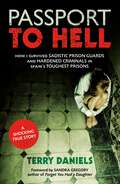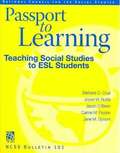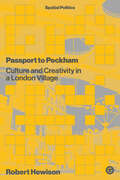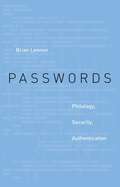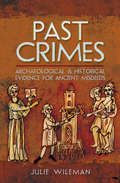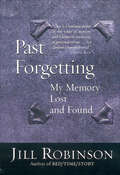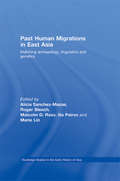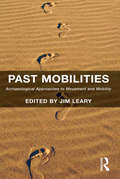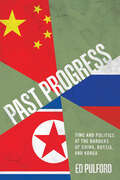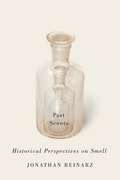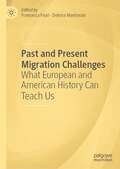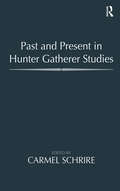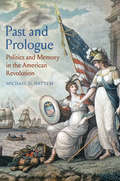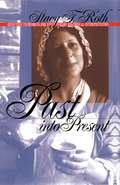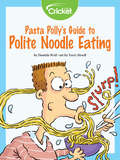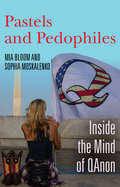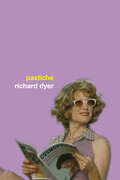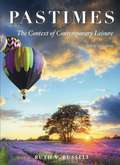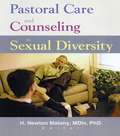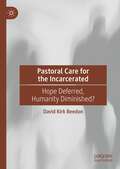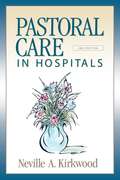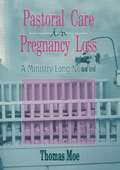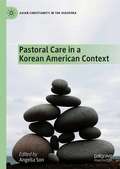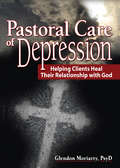- Table View
- List View
Passport to Hell: How I Survived Sadistic Prison Guards and Hardened Criminals in Spain's Toughest Prisons
by Sandra Gregory Terry DanielsIn 1997, English holidaymaker Terry Daniels was wrongfully accused of smuggling a million pounds worth of cocaine into Spain. She was granted bail but five years later, she awoke to anti-terrorist police breaking down her door. This is the account of her fight for justice, a page-turning memoir of how she triumphed over remarkable misfortune.
Passport to Hell: How I Survived Sadistic Prison Guards and Hardened Criminals in Spain's Toughest Prisons
by Sandra Gregory Terry DanielsIn 1997, English holidaymaker Terry Daniels was wrongfully accused of smuggling a million pounds worth of cocaine into Spain. She was granted bail but five years later, she awoke to anti-terrorist police breaking down her door. This is the account of her fight for justice, a page-turning memoir of how she triumphed over remarkable misfortune.
Passport to Learning: Teaching Social Studies
by Joyce W. Nutta Barbara C. Cruz Jason O'BrienPassport to Learning: Teaching Social Studies
Passport to Peckham: Culture and Creativity in a London Village (Spatial Politics)
by Robert HewisonAn entertaining and engaging social and cultural history of the London community of Peckham that offers lessons in urban living.&“Is there life in Peckham?&” asks a pop song of the 1980s. Peckham has been treated as a joke and a place to be avoided. It has been celebrated in television comedies, and denigrated for its levels of crime. It is a center for the arts and the creative industries, yet it also suffers from social deprivation and racial tension. Passport to Peckham is a guide to an unofficial part of London—social and cultural history written from the ground up. In this entertaining and engaging account, Hewison invites readers to explore Peckham&’s streets and presents the portrait of a community experiencing the stresses of modern living. Old and new residents rub against each other as they try to adjust to the challenges created by urban regeneration and the more subtle process of gentrification. Artists have lived and worked in Peckham for more than a century, and now Caribbean and West African communities are adding their own flavors in terms of music, drama, poetry, and film. Focused on a few square miles, Passport to Peckham raises issues of urban policy, planning, culture, and creativity that have a far wider application. As London and other major cities recover from the COVID crisis, are there lessons in urban living to be learned from the pleasures and pains of Peckham? The answer from one of Britain&’s most distinguished cultural critics is an emphatic yes.
Passwords: Philology, Security, Authentication
by Brian LennonCryptology, the mathematical and technical science of ciphers and codes, and philology, the humanistic study of natural or human languages, are typically understood as separate domains of activity. But Brian Lennon contends that these two domains, both concerned with authentication of text, should be viewed as contiguous. He argues that computing’s humanistic applications are as historically important as its mathematical and technical ones. What is more, these humanistic uses, no less than cryptological ones, are marked and constrained by the priorities of security and military institutions devoted to fighting wars and decoding intelligence. Lennon’s history encompasses the first documented techniques for the statistical analysis of text, early experiments in mechanized literary analysis, electromechanical and electronic code-breaking and machine translation, early literary data processing, the computational philology of late twentieth-century humanities computing, and early twenty-first-century digital humanities. Throughout, Passwords makes clear the continuity between cryptology and philology, showing how the same practices flourish in literary study and in conditions of war. Lennon emphasizes the convergence of cryptology and philology in the modern digital password. Like philologists, hackers use computational methods to break open the secrets coded in text. One of their preferred tools is the dictionary, that preeminent product of the philologist’s scholarly labor, which supplies the raw material for computational processing of natural language. Thus does the historic overlap of cryptology and philology persist in an artifact of computing—passwords—that many of us use every day.
Past Crimes: Archaeological & Historical Evidence for Ancient Misdeeds
by Julie Wileman&“Presents an understanding of the science, skills, and craft of the archaeologist and how these can be used to unravel many criminal mysteries.&” —Police History Society Newsletter Today, police forces all over the world use archaeological techniques to help them solve crimes—and archaeologists are using the same methods to identify and investigate crimes in the past. This book introduces some of those techniques, and explains how they have been used not only to solve modern crimes, but also to investigate past wrongdoing. Past Crimes presents archaeological and historical evidence of crimes from mankind&’s earliest days, as well as evidence of how criminals were judged and punished. Each society has had a different approach to law and order, and these approaches are discussed here with examples ranging from Ancient Egypt to Victorian England—police forces, courts, prisons, and executions have all left their traces in the physical and written records. Also discussed here is how the development of forensic approaches has been used to collect and analyze evidence that were invented by pioneer criminologists. From the murder of a Neanderthal man to bank fraud in the nineteenth century, via ancient laws about religion and morality and the changes in social conditions and attitudes, a wide range of cases are included—some terrible crimes, some amusing anecdotes, and some forms of ancient law-breaking that remain very familiar.
Past Forgetting: My Memory Lost and Found
by Jill RobinsonA love story, a mystery, and a memory guide, Past Forgetting shows a writer's determination to re-create her life.Jill Robinson, novelist and author of Bed/Time/Story, wakes from a coma to discover she's lost her memory and just about any sense of who she was.And is.She likes the look of the man standing next to her bed, but doesn't recognize that he's her husband, Stuart. What matters is that she feels safe around him. As she searches the house for her children, she is reminded that her son and daughter are both grown with families of their own--how well did she ever know them? Can You make up for a past you don't really remember?It is Stuart who begins to fill in the details for Jill, including the fact that she's a well-known writer, although when she meets with her doctors, they say she may never write again.Against all odds, Jill Robinson retrieved her unique writing voice, and in this engaging memoir shows how she does it. She takes us with her on her exploration of'tlie connections between memory and creativity, celebrity and anonymity, and loss and discovery. From her first tentative steps outside her house on Wimpole Street to London's sleek West End. From a trip to Oxford to discuss memory with a professor to her amazing voyage to Los Angeles on an assignment for Vanity fair which takes her back to the sixties world of Hockney, Polanski, and Hopper, Jill forges new paths to memory.In Past Forgetting, Jill Robinson rediscovers friendships she doesn't know she had: Robert Redford tells her stories about her childhood; at John Lahr's London literary teas, she's reintroduced to the writer's world, and Cary Grant offers her memories of her father, Dore Schary. And being with Barbra Streisand reminds her of a time she doesn't quite remember: when her father was running MGM.In her urgent voyage to redefine herself, Jill asks all the questions you've ever asked on the nature of memory. Is recollection shadowed by emotion? Is memory an act of reinvention? Do people reinvent rather than recollect? In Past Forgetting you'll find the answers and you'll meet a writer you won't want to forget.
Past Human Migrations in East Asia: Matching Archaeology, Linguistics and Genetics (Routledge Studies in the Early History of Asia)
by Alicia Sanchez-Mazas Roger Blench Malcolm D. Ross Ilia Peiros Marie LinThe study of the prehistory of East Asia is developing very rapidly. In uncovering the story of the flows of human migration that constituted the peopling of East Asia there exists widespread debate about the nature of evidence and the tools for correlating results from different disciplines. Drawing upon the latest evidence in genetics, linguistics and archaeology, this exciting new book examines the history of the peopling of East Asia, and investigates the ways in which we can detect migration, and its different markers in these fields of inquiry. Results from different academic disciplines are compared and reinterpreted in the light of evidence from others to attempt to try and generate consensus on methodology. Taking a broad geographical focus, the book also draws attention to the roles of minority peoples – hitherto underplayed in accounts of the region’s prehistory – such as the Austronesian, Tai-Kadai and Altaic speakers, whose contribution to the regional culture is now becoming accepted. Past Human Migrations in East Asia presents a full picture of the latest research on the peopling of East Asia, and will be of interest to scholars of all disciplines working on the reconstruction of the peopling of East and North East Asia.
Past Mobilities: Archaeological Approaches to Movement and Mobility
by Jim LearyThe new mobilities paradigm has yet to have the same impact on archaeology as it has in other disciplines in the social sciences - on geography, sociology and anthropology in particular - yet mobility is fundamental to archaeology: all people move. Moving away from archaeology’s traditional focus upon place or location, this volume treats mobility as a central theme in archaeology. The chapters are wide-ranging and methodological as well as theoretical, focusing on the flows of people, ideas, objects and information in the past; they also focus on archaeology’s distinctiveness. Drawing on a wealth of archaeological evidence for movement, from paths, monuments, rock art and boats, to skeletal and DNA evidence, Past Mobilities presents research from a range of examples from around the world to explore the relationship between archaeology and movement, thus adding an archaeological voice to the broader mobilities discussion. As such, it will be of interest not only to archaeologists and historians, but also to sociologists, geographers and anthropologists.
Past Progress: Time and Politics at the Borders of China, Russia, and Korea
by Ed PulfordWhile anxiety abounds in the old Cold War West that progress – whether political or economic – has been reversed, for citizens of former-socialist countries, murky temporal trajectories are nothing new. Grounded in the multiethnic frontier town of Hunchun at the triple border of China, Russia, and North Korea, Ed Pulford traces how several of global history's most ambitiously totalizing progressive endeavors have ended in cataclysmic collapse here. From the Japanese empire which banished Qing, Tsarist, and Choson dynastic histories from the region, through Chinese, Soviet, and Korean socialisms, these borderlands have seen projections and disintegrations of forward-oriented ideas accumulate on a grand scale. Taking an archaeological approach to notions of historical progress, the book's three parts follow an innovative structure moving backwards through linear time. Part I explores "post-historical" Hunchun's diverse sociopolitics since high socialism's demise. Part II covers the socialist era, discussing cross-border temporal synchrony between China, Russia, and North Korea. Finally, Part III treats the period preceding socialist revolutions, revealing how the collapse of Qing, Tsarist, and Choson dynasties marked a compound "end of history" which opened the area to projections of modernity and progress. Examining a borderland across linguistic, cultural, and historical lenses, Past Progress is a simultaneously local and transregional analysis of time, borders, and the state before, during, and since socialism.
Past Scents: Historical Perspectives on Smell
by Jonathan ReinarzIn this comprehensive and engaging volume, medical historian Jonathan Reinarz offers a historiography of smell from ancient to modern times. Synthesizing existing scholarship in the field, he shows how people have relied on their olfactory sense to understand and engage with both their immediate environments and wider corporal and spiritual worlds. This broad survey demonstrates how each community or commodity possesses, or has been thought to possess, its own peculiar scent. Through the meanings associated with smells, osmologies develop--what cultural anthropologists have termed the systems that utilize smells to classify people and objects in ways that define their relations to each other and their relative values within a particular culture. European Christians, for instance, relied on their noses to differentiate Christians from heathens, whites from people of color, women from men, virgins from harlots, artisans from aristocracy, and pollution from perfume. This reliance on smell was not limited to the global North. Around the world, Reinarz shows, people used scents to signify individual and group identity in a morally constructed universe where the good smelled pleasant and their opposites reeked. With chapters including "Heavenly Scents," "Fragrant Lucre," and "Odorous Others," Reinarz's timely survey is a useful and entertaining look at the history of one of our most important but least-understood senses.
Past and Present Migration Challenges: What European and American History Can Teach Us
by Francesca Fauri Debora MantovaniThis edited collection sheds light on the complex nature of migratory movements through the lens of economic and social history. It addresses a variety of migration issues involving Europe and the Americas in order to offer new insights on past and future migration and integration policies. The volume comprises multi-disciplinary research from both continents dealing with the economic, political, demographical and sociological impact of migration. This interdisciplinary approach aims to stimulate intellectual dialogue on the migration phenomenon among the international community of scholars in Europe and North and South America. It is divided into three parts, which offer an essential contribution to the issue of migration and aim at better understanding the effect that different forms of migration have had and will continue to exert on economic and social change in receiving countries. This book is a valuable resource for a wide audience including academics, students in the economic and social sciences, and government and EU officials working with migration topics.
Past and Present in Hunter Gatherer Studies
by Carmel SchrireThis volume shows how hunter gatherer societies maintain their traditional lifeways in the face of interaction with neighboring herders, farmers, and traders. Using historical, anthropological and archaeological data and cases from Africa, Australia, and Southeast Asia, the authors examine hunter gatherer peoples—both past and present--to assess these relationships and the mechanisms by which hunter gatherers adapt and maintain elements of their culture in the wider world around them.
Past and Prologue: Politics and Memory in the American Revolution
by Michael D. HattemHow American colonists reinterpreted their British and colonial histories to help establish political and cultural independence from Britain In Past and Prologue, Michael Hattem shows how colonists’ changing understandings of their British and colonial histories shaped the politics of the American Revolution and the origins of American national identity. Between the 1760s and 1800s, Americans stopped thinking of the British past as their own history and created a new historical tradition that would form the foundation for what subsequent generations would think of as “American history.” This change was a crucial part of the cultural transformation at the heart of the Revolution by which colonists went from thinking of themselves as British subjects to thinking of themselves as American citizens. Rather than liberating Americans from the past—as many historians have argued—the Revolution actually made the past matter more than ever. Past and Prologue shows how the process of reinterpreting the past played a critical role in the founding of the nation.
Past into Present
by Stacy F. RothFirst-person interpretation--the portrayal of historicalcharacters through interactive dramatization or roleplaying--isan effective, albeit controversial, method used to bring historyto life at museums, historic sites, and other public venues.Stacy Roth examines the techniques of first-person interpretationto identify those that have been most effective with audienceswhile allowing interpreters to maintain historical fidelity. Past into Present focuses on first-personinterpretation's most challenging form: the unscripted,spontaneous, conversational approach employed in "living history"environments such as Plimoth Plantation in Massachusetts, ConnerPrairie in Indiana, and Colonial Williamsburg in Virginia. Whileacknowledging that a wide range of methods can touch audienceseffectively, Roth identifies a core set of practices that combinepositive communication techniques, classic interpretivephilosophy, and time-tested learning theories to promote audienceenjoyment, provoke thought and inquiry, convey important messagesand themes, and relate to individual visitor interests. Sheoffers numerous examples of conversation and demonstrationstrategies, visitor behavior profiles, and suggestions fordepicting conflict and controversy, and she provides usefulcharacter development guidelines, interpretive training advice, and recommendations for adapting first-person interpretation fordiverse audiences.
Pasta Polly's Guide to Polite Noodle Eating
by Daniela WeilNo matter where you are in the world, noodles are bound to be a worthy meal choice. But be sure to remember your table manners! In this funny story, Pasta Polly explains the polite way to eat noodle dishes in Japan, China, Thailand, Italy, and America.
Pastels and Pedophiles: Inside the Mind of QAnon
by Mia Bloom Sophia MoskalenkoTwo experts of extremist radicalization take us down the QAnon rabbit hole, exposing how the conspiracy theory ensnared countless Americans, and show us a way back to sanity. In January 2021, thousands descended on the U.S. Capitol to aid President Donald Trump in combating a shadowy cabal of Satan-worshipping pedophiles. Two women were among those who died that day. They, like millions of Americans, believed that a mysterious insider known as "Q" is exposing a vast deep-state conspiracy. The QAnon conspiracy theory has ensnared many women, who identify as members of "pastel QAnon," answering the call to "save the children." With Pastels and Pedophiles, Mia Bloom and Sophia Moskalenko explain why the rise of QAnon should not surprise us: believers have been manipulated to follow the baseless conspiracy. The authors track QAnon's unexpected leap from the darkest corners of the Internet to the filtered glow of yogi-mama Instagram, a frenzy fed by the COVID-19 pandemic that supercharged conspiracy theories and spurred a fresh wave of Q-inspired violence. Pastels and Pedophiles connects the dots for readers, showing how a conspiracy theory with its roots in centuries-old anti-Semitic hate has adapted to encompass local grievances and has metastasized around the globe—appealing to a wide range of alienated people who feel that something is not quite right in the world around them. While QAnon claims to hate Hollywood, the book demonstrates how much of Q's mythology is ripped from movie and television plot lines. Finally, Pastels and Pedophiles lays out what can be done about QAnon's corrosive effect on society, to bring Q followers out of the rabbit hole and back into the light.
Pastiche
by Richard DyerWriting with his customary wit and style, Richard Dyer argues that while pastiche can be used to describe works which contain montage or collage, it can also be used to describe works which are a kind of imitation of previous works. Investigating a wide range of cultural texts drawn from films, videos, novels, poetry, rap tracks, music and painting, Richard Dyer explores issues of text, genre, and the use of pastiche as a resource within a work. The final chapter draws together the underlying concern of the book with affect and poetics and discusses the politics of pastiche.
Pastimes: The Context of Contemporary Leisure (Fifth Edition)
by Ruth V. RussellOriginally published in 1996, "Pastimes" introduced an exciting new text that explored leisure and recreation philosophy and science, the various subfields, and the leisure services industry. The purpose of this fifth edition of Pastimes is to extend the discussion about leisure in society to new concepts supported by new research findings and commentary. Throughout, the author has pursued the most interesting, relevant, exciting, and contemporary information possible. First, as an introduction to the phenomenon of leisure, the book must be current. Momentous changes, actual and alleged, have always been the root of leisure expressions and experiences. To match, Pastimes again reflects a wide range of material from the disciplines of leisure studies, sociology, psychology, economics, political science, anthropology, geography, the humanities, and media and cultural studies. Second, as a learning tool, this fifth edition teaches more. It contains new illustrations of concepts through field-based cases, biographical features, exploratory activities, and research studies. While the basic organisation remains similar, in addition to new material, some former concepts have been relocated. For example, the topic of history and its meanings for leisure is now combined into one chapter. Also, the discussion of work is now combined with that about economics in the same chapter. Also, theories explaining leisure behaviour are now organised according to their home discipline. A chapter on well-being and leisure is a new feature, and because of the amazing speed of change, the chapter on leisure and technology has been completely rewritten. The chapter on time has also been expanded. Finally, the last chapter on leisure systems has a new section on professional preparation. But, more than a textbook, Pastimes is very much a point of view. Leisure is presented as a human phenomenon that is individual and collective, vital and frivolous, historical and contemporary, factual and subjective, good and bad.
Pastoral Care and Counseling in Sexual Diversity
by Richard L Dayringer H Newton MalonyLearn to reach out to these hidden Christians! Offering a wide variety of points of view from the welcoming to the traditional, Pastoral Care and Counseling in Sexual Diversity addresses one of the crucial issues facing the church in these shifting times. Pastors of all Christian churches, whatever their denomination or theology, are likely to be faced with pastoral care or counseling of someone who is lesbian, gay, bisexual, or transgendered. This valuable compendium examines various ways you can meet the spiritual and psychological needs of these members of your congregation. Pastoral Care and Counseling in Sexual Diversity addresses the basic problems of sexual diversity, including definitions of sexual orientations and issues of human development. It offers wise guidance for offering pastoral care and counseling, and it provides tested solutions for the problems counselors face in dealing with these individuals. Pastoral Care and Counseling in Sexual Diversity offers thought-provoking points of view on a wide range of issues, including: changes in attitudes toward homosexuality among mental health professionals the limits of confidentiality sexual diversity in the black church a developmental model for effective treatment of male homosexuality pastoral care and the formation of sexual identity Biblical perspectives on homosexuality counseling lesbians AIDS ministries and grief counselingPastoral Care and Counseling in Sexual Diversity is an essential resource for pastors, pastoral counselors, and therapists dealing with these vexing issues facing the Christian church in the new millennium.
Pastoral Care for the Incarcerated: Hope Deferred, Humanity Diminished?
by David Kirk BeedonThis book explores and formulates a response to the question: How best can those held in modern systems of mass incarceration be cared for pastorally when many prisons diminish both hope and humanity? Employing the multi-disciplinary approach of practical theology, this ethnographic enquiry will be a guide for chaplains and all who strive to embody compassion wherever human flourishing is undermined. The book’s structure follows the pastoral cycle method from practical theology, remaining context-based and practice-focused throughout. Pastoral insights are illustrated with personal, poetic and movingly reflective material drawn from the lived experience of indeterminately sentenced men who did not know if or when they would be ever released. The author, a former prison chaplain, remains reflexively and humanely present in the text, modelling the profound humane regard and pastoral presence that is central to this work. This book will take the reader deeply into penal spaces on a journey of both compassion and hope.
Pastoral Care in Hospitals
by Neville A KirkwoodAn essential handbook for bedside ministry, and for providing meaningful and enriching comfort to the sick and dying. Bringing comfort and concern to the seriously ill or injured is a challenge for lay people and clergy alike. In this practical guide, Neville Kirkwood shares wisdom gained from years of experience as a hospital chaplain–on the art of hospital visitation. This classic handbook, now updated, contains all the tools needed to address a variety of concerns: * Considering the privacy of the patient, and of friends and relatives * Realizing the time and place for prayer * Avoiding the pitfalls of bedside ministry * Imparting feelings of empathy and awareness * Handling depression, suffering, and despair * Understanding the non-verbal communications of the patient * Accepting when your services are not welcome * Acknowledging your own motivations Featuring additional sections addressed to clergy and trained lay pastoral workers, as well as those designed for lay volunteers, as well as a variety of exercises and prayers for specific circumstances, this is a “must-have resource for all who work with the sick and dying” (South Dakota Church News).
Pastoral Care in Pregnancy Loss: A Ministry Long Needed
by Thomas MoeUntil now, the church has been unaware of the need for ministry to those suffering from pregnancy loss. At a time when approximately one in four pregnancies ends in loss, the need to understand and provide caring ministry is painfully obvious. Pastoral Care in Pregnancy Loss introduces the religious community to the issue of pregnancy loss and describes the ministries that can be helpful to those who experience these tragedies. Effective ministry in pregnancy loss requires that one develop basic life theories in order to prepare for such in-depth care. Thus, the book is more than a “how to” as it explores why there is suffering and why some suffer more than others, how to find grace when God seems far away, how to minister when we don’t have answers, and how religious ministry can consistently work with other helping professionals in support of the individual. With the foundation of ministry theory provided by Pastoral Care in Pregnancy Loss, you can help your faith community develop strategies for ministry to those suffering from pregnancy loss. Numerous case studies illustrate what is usually done wrong in providing pastoral care in these difficult and delicate situations and explain why those who experience loss may blame themselves, why they may blame God, and why they may not feel able to return to church. Providing helpful insight to hospital pastoral care departments, church libraries, funeral directors, counselors and psychologists, nursing and obstetrics professionals, and seminaries with a marriage and family ministry specialty, this book provides readers with information about: three types of pregnancy loss--miscarriage, still birth, and neonatal loss church outreach the grieving process victims as “consenters” or “experiencers” the spiritual needs of those suffering loss practical ministries crisis support and long-term support.Pastoral Care in Pregnancy Loss furthers your understanding of pregnancy loss by enumerating theories on how suffering and loss are viewed by those suffering--either as a time of testing, a time of training, a mystery of God, a sign of punishment and warning, or as having no meaning. The book also shows how pregnancy loss affects five different types of personal relationships and discusses both immediate and long-term concerns of providing pastoral care. From helping the victim find meaning or reason for the loss to providing support in preparing for future pregnancies, this book provides much-needed guidance to an often-neglected ministry.
Pastoral Care in a Korean American Context (Asian Christianity in the Diaspora)
by Angella SonThis book provides theoretical background and pastoral strategies for pastors, lay leaders, and congregation members to foster a restoration of the human dignity imputed by God and the good community God desires. It addresses issues in pastoral care and pays particular attention to Korean and Korean American contexts. Some of the specific issues addressed include wisdom for common life (Chung Yong) as a theological and pastoral task, tension between Confucianism and feminism, care of the abused and abusers in intimate violence, ageism and elderly care, racism and cultural identity of Korean youth, sexual ethics among Korean young adults, and depression and addiction among Korean American youth and young adults. All of the contributors have a strong background in clinical and/or pastoral practices in addition to theoretical expertise.
Pastoral Care of Depression: Helping Clients Heal Their Relationship with God
by Glendon MoriartyThis book provides the essential tools needed to transform negative God images in depressed clients! Pastoral Care of Depression: Helping Clients Heal Their Relationship with God is designed to help clergy and mental health professionals understand how depression negatively affects the way people emotionally experience God and how, through therapy, this hurtful God image can be changed into a much more positive one focused on healing.In the past, the God image (as well as the essential differentiation between God image and God concept) has been explained in dull, analytic terms that are difficult to understand. This book&’s jargon-free language and engaging presentation make it an effective learning tool for students and professionals alike. Inside, you&’ll find numerous psychological tests, complete with sample test forms, that identify the God image. These are clearly explained and include all the information needed to take, administer, and interpret them. Pastoral Care of Depression teaches you to use psychodynamic and cognitive interventions to change a client&’s God image, including foundational knowledge and clearly presented techniques to implement in the therapeutic relationship. This comprehensive treatment manual arms you with the most comprehensive array of cognitive interventions published to date, with tens of easy-to-follow techniques designed to tap directly into an individual&’s subjective experience of God. Two appendixes give you a sample God Image Automatic Thought Record and Treatment Plan form.Part I: Depression and the God Image examines: the nature and development of depression symptoms of depression specific to religious people defining a client&’s image of God, how it developed, and what it reveals the relationship between self, depression, and God image, and how God images relate to Christian thoughtPart II: Changing the God Image addresses: the importance of self-evaluation for therapists and counselors-and how to do it the nature of the therapeutic relationship counseling skills that strengthen the therapeutic relationship how to conduct an God Image Assessment Interview and how to work with what that interview reveals transference, countertransference, cyclical maladaptive patterns, and internalization in psychodynamic psychotherapy appropriate, effective psychodynamic interventions the essentials of cognitive therapy and how it can be utilized to positively affect the God image treatment planning and case conceptualization important ethical issues for considerationWith well-designed test and exercise forms and clear instructions on their use and interpretation, Pastoral Care of Depression provides the essential tools needed to work effectively with this important client group. Make it a part of your professional/teaching collection today!
